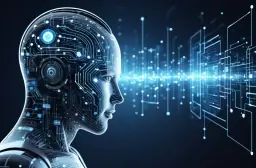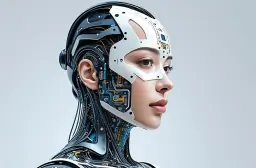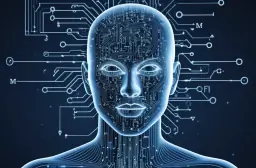How AI Transforms Daily Life: Smart Tech Innovation Unveiled
Table of Contents
Artificial Intelligence (AI) is no longer a futuristic concept reserved for science fiction. It has gradually integrated into our daily routines, transforming the way we interact with technology and live our lives. From the moment we wake up to the time we go to bed, AI is actively working behind the scenes to simplify tasks, enhance efficiency, and even predict our needs. But have you ever stopped to think about just how deeply AI has embedded itself into the fabric of our daily existence?
What if we told you that AI is already shaping your daily routine in ways you never imagined? The machines that once seemed distant and complex are now your daily companions—helping you with everything from managing your schedule to ensuring your home is smart and efficient. But what does that mean for you? Is this the end of mundane chores, or just the beginning of an AI-powered lifestyle?
In this article, we’ll explore the fascinating world of AI in everyday life. We’ll dive into how AI is reshaping daily routines, enhancing our productivity, and revolutionizing the way we interact with technology. Get ready for an in-depth look at the smart tech innovations that are changing our world one task at a time.
The Role of AI in Everyday Life: From Personal Assistants to Smart Homes

AI-powered solutions are no longer just a luxury; they are rapidly becoming a necessity in modern living. Digital assistants like Siri, Alexa, and Google Assistant are the perfect examples of AI’s role in simplifying tasks. These virtual helpers are designed to understand and predict our needs. Whether you’re setting a reminder, asking for weather updates, or controlling home devices, AI is always ready to assist.
But it doesn’t stop there. Smart home systems are now a core part of daily living. Imagine walking into your house, and the lights automatically turn on, your favorite playlist starts playing, and the thermostat adjusts to your desired temperature—all without lifting a finger. AI integration in home automation systems ensures your living environment is tailored to your preferences and needs. From smart refrigerators that suggest recipes based on available ingredients to robotic vacuums that clean your house, AI has become an essential part of modern homes.
Here’s a breakdown of AI applications in smart homes:
- Automated Lighting: Lights adjust based on your routine and preferences.
- Smart Security Systems: AI-powered cameras and sensors detect unusual activity.
- Predictive Temperature Control: Thermostats learn your comfort zones and optimize energy usage.
- Smart Appliances: AI-powered washing machines and refrigerators offer personalized settings.
The integration of AI in homes doesn’t just make life convenient; it’s also improving energy efficiency and sustainability, making it easier for individuals to reduce their carbon footprint.
AI for Productivity: Enhancing Daily Tasks and Efficiency
AI is also having a profound impact on productivity. By automating routine tasks, it frees up time for more important activities. Intelligent systems can handle repetitive tasks, such as scheduling meetings, managing emails, and even sorting through large volumes of data. With the help of AI, businesses are becoming more efficient, and individuals are able to focus on tasks that require creativity and decision-making.
Take, for example, the role of AI in office environments. Many software applications now include AI-driven features like automated document sorting, predictive text, and intelligent document processing. Tools like Grammarly and Google Docs are using machine learning algorithms to correct writing in real-time, enhancing productivity and communication. On a larger scale, AI can assist businesses by analyzing trends, improving customer service, and streamlining operations.
For individuals, AI-powered tools like Todoist and Trello help manage tasks and projects more effectively. These tools use machine learning to prioritize tasks based on urgency and deadlines, ensuring that time is spent more wisely.
Here’s how AI boosts productivity:
- Task Automation: Reduces the time spent on manual tasks.
- Personalized Recommendations: AI tools suggest tasks based on your preferences.
- Time Management: AI calendars optimize your schedule to maximize productivity.
AI is not just transforming the workplace; it’s changing the way we approach work-life balance, ensuring we make the most out of every day.
AI in Healthcare: Personalized Care and Wellness

AI is also revolutionizing the healthcare sector, bringing personalized medicine and automated wellness solutions to the forefront. AI-powered health apps monitor everything from exercise to sleep patterns, giving individuals more control over their well-being. Devices like the Apple Watch or Fitbit now use AI to provide personalized fitness recommendations based on real-time data.
In medical settings, AI assists doctors in diagnosing diseases by analyzing vast amounts of medical data faster and more accurately than ever before. Machine learning algorithms can predict health risks, such as heart disease, diabetes, and cancer, by analyzing patterns in medical records. This allows for more personalized treatment plans, saving lives by detecting conditions early.
Virtual healthcare assistants, powered by AI, are becoming common in providing quick advice or reminders about medications. These assistants help patients manage chronic conditions, making healthcare more accessible and efficient.
Here are some key ways AI is impacting healthcare:
- Early Detection: AI analyzes data for early signs of diseases.
- Personalized Treatment: AI recommends treatments tailored to individual needs.
- Remote Health Monitoring: Devices track health metrics in real-time.
AI is not just about tech-driven solutions but is actively improving the quality of life and making healthcare more accessible to everyone.
AI and Personalized Lifestyle: Enhancing Convenience
AI has the potential to transform not just homes and workplaces but also how we live our personal lives. With AI-driven smart gadgets, we can now personalize everything from the way we shop to how we relax at home. Voice assistants can suggest music playlists based on our mood, while AI-powered shopping platforms recommend products based on past purchases.
The convenience of predictive technology is evident in services like ride-sharing apps. AI algorithms analyze real-time data, such as traffic patterns and user preferences, to provide the most efficient routes and estimated arrival times. The predictive nature of AI allows these services to offer unparalleled convenience, ensuring faster and more efficient service.
For example:
- Smart wearables monitor our health and activity levels.
- AI-driven shopping recommendations ensure we only see products we’re likely to buy.
- Voice assistants adjust to our preferences for entertainment, news, and more.
AI is making our lives more convenient by anticipating our needs, helping us save time and energy, and providing a more personalized experience.
Frequently Asked Questions (FAQs)
What is AI’s role in everyday life? AI enhances daily living by automating tasks, improving productivity, and providing personalized experiences in everything from healthcare to home automation.
How does AI help with productivity? AI boosts productivity by automating repetitive tasks, suggesting smart solutions, and organizing schedules to ensure more time for critical tasks.
Are AI-powered devices safe to use? Yes, most AI-powered devices are designed with security in mind, but it’s important to stay updated with software and privacy settings to ensure maximum protection.
What is the future of AI in daily life? AI will continue to evolve, with advancements in personalized solutions, improved automation, and deeper integration into every aspect of life, making it smarter and more intuitive.
Conclusion
In conclusion, AI has already made a profound impact on daily life, from enhancing productivity to personalizing healthcare and making our homes smarter. As AI continues to evolve, its applications will only grow more sophisticated, creating even more seamless interactions between humans and technology. Whether it’s helping us with our work, managing our health, or improving our daily routines, AI-powered solutions are transforming the world into a smarter, more efficient place to live. By embracing these advancements, we can look forward to a future where technology not only supports but enriches our lives.
Key Takeaways:
- AI is revolutionizing everyday tasks by making life more convenient and efficient.
- Smart technology is enhancing productivity and personalizing experiences in various sectors.
- AI-driven lifestyle tools help improve everything from health to home automation, providing personalized solutions.
- As AI evolves, its integration into daily life will become even more seamless, offering greater convenience and efficiency.










